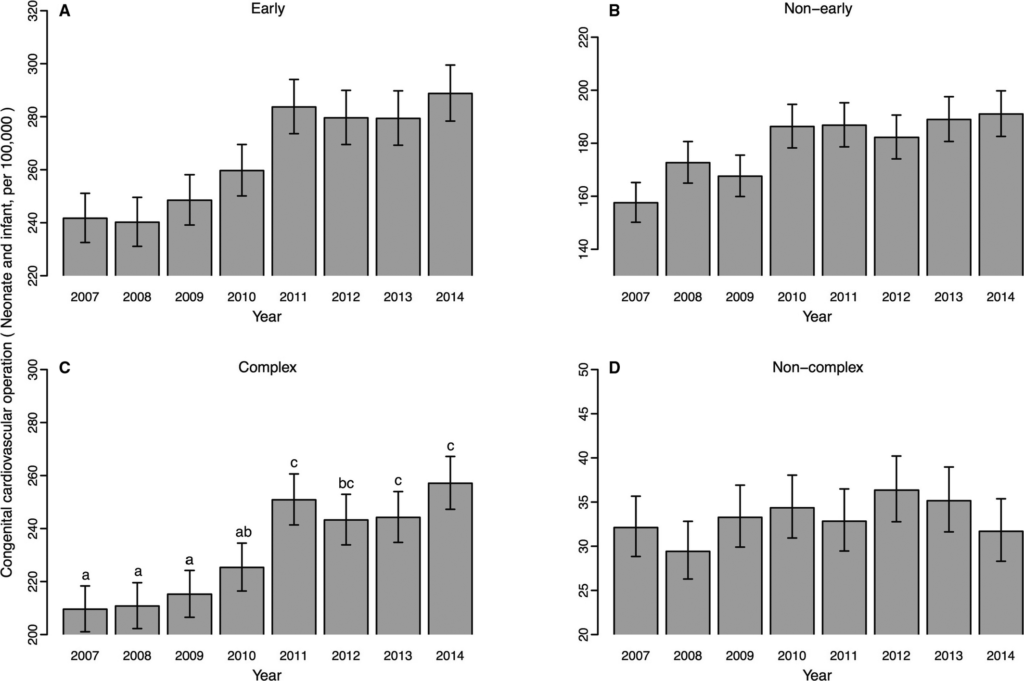Study links Fukushima disaster to spike in infant heart surgeries

By Lucy Craft
14 March 2019
TOKYO (CBS News) – As Japan marks the eight-year anniversary of the catastrophic earthquake and tsunami that claimed some 22,000 lives, a new study suggests it could still be having a serious impact on the nation’s health. The disaster caused by the killer wave at the Fukushima Daiichi nuclear power plant has been linked by the research to a significant spike in infant heart surgeries.
While not a single death has been definitively attributed to radiation exposure from the leaks at the Fukushima plant, the study found the number of surgeries for children under the age of one with complex congenital heart disease, or CHD, spiked by more than 14 percent.
The study was led by Kaori Murase, an associate professor of natural sciences at Nagoya City University in central Japan, and published on Wednesday by the American Heart Association.
According to Stanford Children’s Health, CHD, is the most common birth defect and usually has no identifiable cause. “Complex” CHD involves a combination of heart defects that cause either too much blood, or too little, to flow into the lungs or other parts of the body.
Even after multiple surgeries, symptoms can afflict a patient throughout their life. The earlier abnormalities appear during the eight-week process of heart development in unborn babies, the more severe the damage generally is.
“Our study suggests that a nuclear accident might increase the risk for complex congenital heart disease,” Murase said, noting that the data suggest a catastrophic release of radiation anywhere in the world could precipitate similar problems.
For a four-year period beginning in 2011, the number of heart surgeries jumped by 14.2 percent in children under the age of one, compared to the four years prior to the disaster.
That number remained unusually high throughout 2014. It is unclear if the rise was triggered by the radiation from the nuclear accident, or the stress of the tragedy on women of childbearing age. [more]
Study links Fukushima disaster to spike in infant heart surgeries
ABSTRACT: After the Chernobyl nuclear accident in 1986, an increase in the incidence of congenital heart disease (CHDs) in the neighboring countries was reported. In 2011, Japan experienced the Great East Japan Earthquake and the nuclear accidents at Fukushima. However, a nationwide study of their effects has not been conducted yet.
METHODS AND RESULTS: We used data covering the period between 2007 and 2014 from the annual surveys conducted by the Japanese Association for Thoracic Surgery, which included almost all of the operations pertaining to 46 types of CHDs in Japan. CHDs were divided into 2 groups based on complexity, the time of occurrence during heart development, and age at operation. We estimated the change in the number of the operations per 100 000 live births between pre‐ and postdisaster using a negative binomial generalized linear mixed model. Overall, a significant 14.2% (95% CI, 9.3–19.4) increase in the number of operations for complex CHDs in neonates and infants per 100 000 live births was found, whereas those performed for patients of 1 to 17 years old showed no significant change during the study period.
CONCLUSIONS: The number of operations for complex CHDs in neonates and infants in Japan significantly increased after the massive disaster, and its level was maintained thereafter. The number of operations for complex CHD was not equal but closely correlated to the live birth prevalence of complex CHDs. Therefore, some meaningful increase in the live birth prevalence can be assumed; however, the precise cause of the increase is unknown.
Nationwide Increase in Complex Congenital Heart Diseases After the Fukushima Nuclear Accident